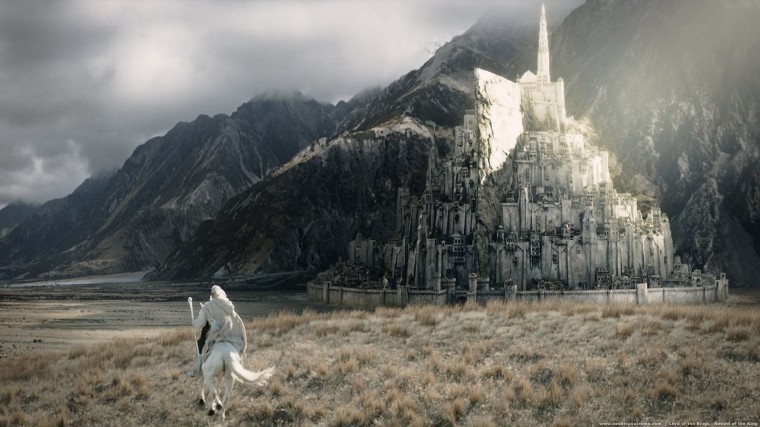YES: It’s a movie, not a marathon
Alfred Hitchcock once said, “The length of a film should be directly related to the endurance of the human bladder.”
It’s a quote peppered with deadpan disdain for cinema audiences and their petty, materialistic problems, but he’s got a point. While there’s some merit in the occasional overlong epic a la Peter Jackson, it’s the movies that are able to stay gripping and compelling without wandering too far beyond the 90-minute benchmark that deserve the most credit. There is no creative exercise more intrepid than trimming the excess fat from a precious work.
The new film Cloud Atlas, adapted from the award-winning science fiction novel by David Mitchell, is an obvious, recent scapegoat that proves my theory. Standing plump with its monstrous runtime of 172 minutes, preconceptions about thematic pomp and genuine ridiculousness are inevitable. I remember going out of my way to drink a giant coffee right before the lights dimmed at the screening to brace myself for what was to come.
Whether or not the movie itself proved its worth is irrelevant. The real, overarching question is this: How can we condense narratives to the point where they are both artistically faithful to the initial vision of the director and engaging for the audience as well?
The answer to this lies in production confines. The Wachowskis, along with colleagues Christopher Nolan and James Cameron, have the kind of budgets that give them free reign to make the biggest, brashest, loudest movies they can. It may yield a pleasing sensory experience, but where is the artistic restraint?
If a school or work assignment requires us to stop writing after five pages or 1000 words, then we must oblige. Yet, if there is no cap on length and the ideas are ever-flowing, we’ll tell ourselves longer papers demonstrate greater mastery of a certain topic. The same applies to film. There’s a misconception that the longer the movie is, the better it must be. What happened to being terse and purposeful?
Take the Coen Brothers’ 1996 masterpiece Fargo as an example. Amidst the chilling scenery and iconic performances, it’s easy to forget that it stands at only 98 minutes, hovering brilliantly around the ideal length.
While the case could be made that Cloud Atlas did need every single one of its 172 minutes, a tighter budget would have forced the Wachowskis to get a little bit more economical and creative, thus trimming away some of the lingering fat.
Maybe then I wouldn’t have had to worry about my bladder exploding.
–Dean
NO: It’s the filmmaker’s prerogative
Pushing for shorter, 90-minute feature films is not a movement espoused by filmmakers. It’s an idea promoted by producers, studio executives and theater exhibitors as a means to jam more showings in a day and thereby increase the opportunity for revenue.
That’s why we hear more stories about arguments between the director and the studio over the length of a film, most recently with David Fincher’s The Girl with the Dragon Tattoo. Contracts are signed before a movie enters production limiting the maximum run time of a movie.
It just seems wrong for these decisions to be made before a single frame gets shot. The standard metric of one script page a minute doesn’t account for all the changes a film endures during production and editing. Contracts drawn prior to the production make sense in a business sense, but absolutely cripple the ability of an artist to create great art.
Efficiency and clarity in storytelling are valuable, commendable goals. However, the world of cinema encompasses far more than stories you can adequately tell on a truncated runtime. The lengths of many films are dictated less by obtuse organization than by the scope and the scale of the movie.
Are there movies that would be improved by tighter editing? Of course; I would have rather sat through less of Transformers, The Dark Knight, The Avengers, etc. But, there are an equal or greater number of movies that either have or would have benefited from more running time.
Judging long films as examples of lazy or sloppy filmmaking is simply wrong. Could you imagine a 90-minute version of Lord of the Rings or a stripped down cut of Lawrence of Arabia? What would Satantango be without the dreamy, pastoral tone afforded by its substantial length? Deliberately and precisely made movies can effectively utilize their two-hour-plus lengths as a tool, whether to give more depth to a large ensemble of characters or to create a certain tone.
Sitting and engaging with a movie for three hours can be a chore, but to renounce such films would be to miss out on many of cinema’s greatest experiences. Not every movie should be as long as Heat, but films should have that right to tell stories at their own pace.
–Warren
Cloud Atlas, from the Wachowskis (of The Matrix fame), is one of innumerable recent blockbusters desperately in need of some trimming. Clocking in at 172 minutes, it’s an endurance test for the human bladder — and it could use some editing.
Despite taking nearly 10 hours to watch all three films, Peter Jackson’s Lord of the Rings trilogy remains a thoroughly enjoyable experience. Duration is an artistic decision just like any other, and it should be OK for a director to tell a long story.





